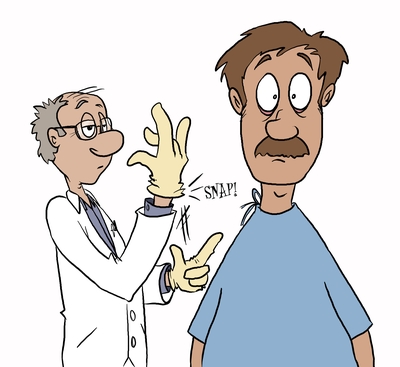
Below is a recent article in U.S. News and World Report, written by Niam Yaraghi of the Brookings Institution, on why doctors continue to perform expensive and unnecessary tests like prostate cancer screening.
Unnecessary and harmful medical procures are a major source of waste in the U.S. health care system. Prostate-specific antigen-based screening (or PSA-based screening) for prostate cancer is an example of such procedures. According to the independent U.S. Preventive Services Task Force, “there is moderate certainty that the benefits of this procedure do not outweigh the harms.” Despite the task force’s discouragements, we spent $132.6 million to perform PSA-based prostate cancer screening on patients covered by Medicare in 2012.
If physicians are recommended not to perform this test, then why do they continue to do so? One can think of two obvious reasons. First, the scientific evidence on the benefits and harms of such tests is not yet exactly clear and thus clinicians have to rely on their own medical hunch rather than solid and irrefutable medical guidelines to make decisions. The second is the usual suspect: Physicians make money from doing these unnecessary tests. As long as physicians are compensated for volume rather than the value of their services, they will be financially inclined to perform as many tests as they can.
In a recent paper, Peter Ubel and David Asch offered additional psychological explanations for why it is difficult for clinicians to “‘de-innovate,’ or give up old practices, even when new evidence reveals that those practices offer little value.” They argued that physicians’ preconceptions lead them to scrutinize the studies that provide evidence against their initial beliefs and instead have a bias toward the studies that confirm their stand. For example, if you enjoy steak, then it is much easier for you to accept the studies which conclude eating cholesterol and saturated fat do not raise cholesterol levels in the blood. On the other hand, if you are a vegetarian, then you may look for the methodological shortcomings in such studies that can be used to discount their conclusions.
Moreover, physicians just like anyone else, are more likely to remember rare events. Many of us know someone who has won the lottery or hit the jackpot on their last trip to Vegas. Likewise, “a practicing breast surgeon might more easily recall a single heartrending example of a young patient who died of advanced breast cancer and who had failed to receive a screening mammogram, compared to hundreds of patients who did fine without mammography,” Ubel and Asch wrote.
Physicians may also incorrectly infer causality from correlated events. The authors of the study pointed to former New York Mayor Rudy Giuliani as a prime example of this; Giuliani credited a PSA-based screening with discovering a tumor and saving his life, “even though it is impossible to know whether Giuliani would have died of cancer if the tumor had not been discovered so early or might even have been better off without the test,” they noted.
The last reason for the reluctance of physicians and patients to give up the unnecessary tests, they argued, arises from the so-called “endowment effect.” In other words, “when things are taken away,” wrote Ubel and Asch, “people tend to place an even greater value on them than they would have otherwise.” The authors argued that patients gradually develop a sense of ownership over the medical tests and procedures that they received and thus “are largely convinced that screening tests have saved more lives, and at less harm, than a cautious view of the science would justify.”
To overcome the resistance to de-innovation, the authors first have recommended the task force’s guideline development committees be made up of medical experts from a wide variety of domains with different clinical expertise so that they can cancel out each other’s conformation bias.
(To read the rest of this article, please visit U.S. News and World Report.)
